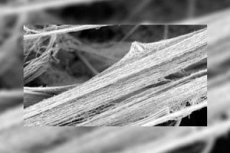New publications
Antibiotics from the web - a new word in medicine
Last reviewed: 02.07.2025

All iLive content is medically reviewed or fact checked to ensure as much factual accuracy as possible.
We have strict sourcing guidelines and only link to reputable media sites, academic research institutions and, whenever possible, medically peer reviewed studies. Note that the numbers in parentheses ([1], [2], etc.) are clickable links to these studies.
If you feel that any of our content is inaccurate, out-of-date, or otherwise questionable, please select it and press Ctrl + Enter.

In recent years, bacteria have developed resistance to almost all drugs. Antibacterial resistance and ways to combat it are increasingly worrying scientists around the world, because if we do not learn to combat the ability of bacteria to resist drugs in the near future, people will be defenseless against infections.
In the UK, a team of scientists conducted an interesting experiment, during which they found out that the basis for creating a new effective antibiotic can be a spider web. Ancient methods, which used spiders and the secretion of their glands, prompted scientists to study the properties of the web. The study was conducted by scientists from the University of Nottingham, located in the UK, in total, the research took about 5 years. Studying the properties of spiders' web glands, experts found that the protein included in it has powerful antiseptic properties, as a result, it was decided to use it as a basis for a new antibacterial drug, in addition to protein, experts added unique enzymes to the antibiotic.
According to lead researcher John Hiddleston, the complex composition of the biological material created by his scientific group has unique properties and maximum practicality. At this stage, the invention of British specialists is undergoing additional clinical trials, in which scientists determine the possible side effects of the drug.
The researchers themselves are confident that their development will have enormous potential and will help further development of medicine. As mentioned at the beginning, antibiotics are rapidly losing their ability to destroy pathogenic bacteria that have learned to resist their action. In the current conditions, scientists need to create more and more new drugs that would cope with infections better than the old ones. Unfortunately, it takes quite a long time to develop new drugs, while bacteria have learned to show resistance to new drugs more and more quickly, so scientists are very concerned about the current situation.
The world's first antibacterial drug was created on the basis of mold, and scientists have no doubt that a new stage in medicine will be the creation of antibiotics based on the secretion of spider silk glands.

In earlier studies, British experts said that a powerful antibiotic could be created from breast milk and the new drug could effectively fight viruses and bacteria.
Breast milk is not only nutrition for a child, but also strong protection against diseases in the first months of life. It is these facts that prompted scientists to study breast milk in more detail and identify which substances help the body of newborns resist viruses and bacteria.
During laboratory work, scientists found that breast milk contains a protein called lactoferrin, which contains compounds that help the immune system resist viruses. Experts decided to create an antibiotic based on lactoferrin, which, according to them, has a powerful ability to destroy bacteria, fungi, and viruses. A special feature of the new drug is that it does not affect healthy cells in the body. Experts also noted that the new drug can be taken with other medications, and its strength of action will not change.

 [
[